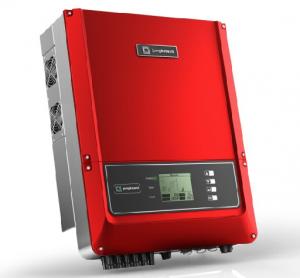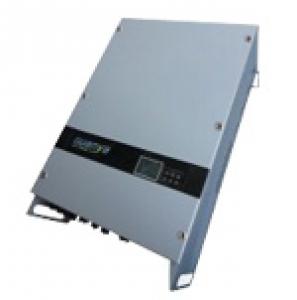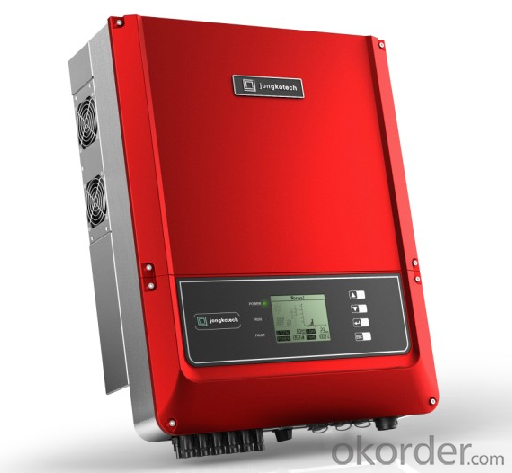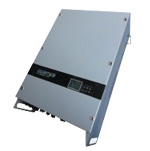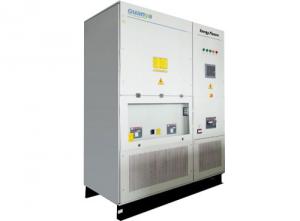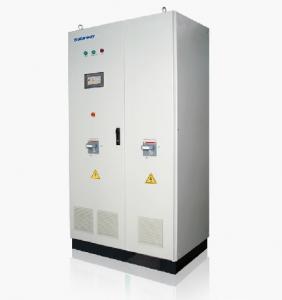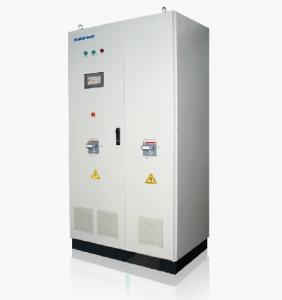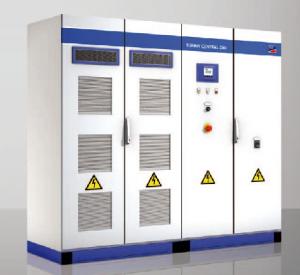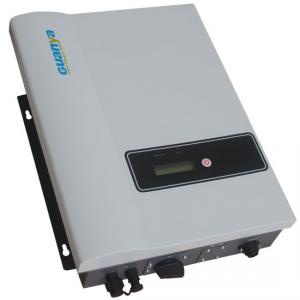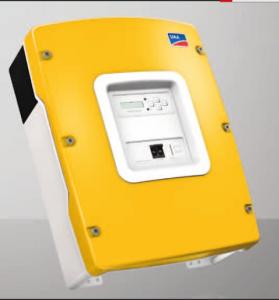Lumos Solar Inverter PV On-Grid Inverter GSG-50KTV from CNBM, China
- Loading Port:
- China Main Port
- Payment Terms:
- TT or LC
- Min Order Qty:
- -
- Supply Capability:
- -
OKorder Service Pledge
OKorder Financial Service
You Might Also Like
Description:
CNBMSOLAR is a world-leading and Vertical integrated manufacturer of high-performance with Silicon,
Wafer, Cells, Modules, which convert sunlight into electricity for residential, commercial, and utility-scale
power generation.
The capacity of CNBMSOLAR is reach to 1GW, and make sure each year our shipment capacity is more
Than 700-800MWs, at the same time, we have set up the largest solar power station with our partner
in Ukraine.
CNBM is a Quality + Service oriented company with“Excellence at Each Step” approach, composed of
the finest components from TUV and IEC-certified partners around the world, CNBM modules consistently
undergo a variety of trials at the company’s Test & Development Centre, ensuring peak performance
capabilities. The company is committed to develop and provide the world with clean and renewable energy
to ease the energy shortages as well as human kind’s impact on the environment.
Data:
input(DC) |
|
MAX.DC.inputpower(KW) | 17.5 |
max.input voltage(Vdc) | 1000 |
max. input current(A) | A:20/B:20 |
MPPTrange(Vdc) | 430~830 |
Min.DC voltage/start voltage(V) | 170/220 |
Output(AC) |
|
rated AC output power(KW) | 17 |
max.output power(KW) | 17 |
Rated voltage of grid(Vac) | 3/N/PE 230/400 |
rated grid frequency(Hz) | 50/60 |
THD | <3%(rated power) |
Power factor | 0.9 leading~0.9 lagging |
Max.AC current(A) | 25 |
phase conductors/connection phases | 3/3 |
Efficiency,safety and protection |
|
max efficiency | 98.20% |
euro efficiency | 97.80% |
MPPT efficiency | 99.90% |
overvoltage/undervoltage protection | yes |
DC isolation impedance monitoring | yes |
ground fault protection | yes |
grid monitoring | yes |
DC linjection monitoring | yes |
ground fault current monitoring | yes |
general data |
|
display | LCD |
communication | ethernet/RS232/RS485 |
self-consumption at night(W) | <5 |
Pollution degree | Ⅱ |
protection degree | IP65 |
cooling | Fan |
operating temperature range | under 20 ~ 60℃(Derating at 45℃) |
operating humid range | 0-100% |
isolation mode | transformerless |
altitude(m) | <2000 |
standard warranty | 5 |
noisy | <45 |
dimensions(w*H*D) (mm) | 520*730*243 |
weight(Kg) | 55 |
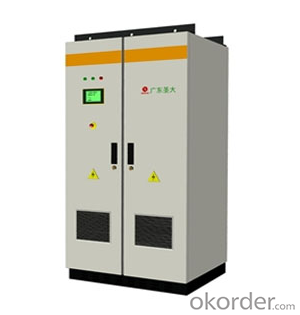
FAQ:Could you introduce more about CNBM?
CNBM Group is short for China National Building Materials Group Corporation, which is established in 1984 with approval from the State Council
CNBM Group is the largest comprehensive building materials industry group in China
The Group has a total asset of over RMB 360 billion, more than 180,000 employees and 17 subsidiaries
- Q: How does a solar inverter handle harmonics in the grid?
- A solar inverter handles harmonics in the grid by implementing various techniques such as filtering, synchronization, and control algorithms. These techniques help in mitigating harmonics and ensuring that the power generated from the solar panels is synchronized and compatible with the grid's electrical frequency and voltage. The inverter's control system monitors the grid's harmonics and adjusts its output accordingly to minimize any adverse effects and maintain grid stability.
- Q: Are there any limitations on the number of solar panels that can be connected to a single inverter?
- The number of solar panels that can be connected to a single inverter is limited. Various factors, such as the inverter's power rating, the voltage and current ratings of the panels, and the system's configuration, determine the maximum number of panels that can be connected. In general, the inverter should be able to handle the combined power output of all the connected panels. If the panels generate more power than the inverter can handle, it can lead to inefficiencies, reduced performance, or damage to the inverter. Moreover, the panels' voltage and current ratings should be within the acceptable range of the inverter. If the panels exceed the inverter's safe limits, it can lead to overloading or malfunctioning. Furthermore, the configuration of the panels is also important in determining the limitations. Panels can be connected in series or parallel, each with its own requirements and limitations. The inverter must be compatible with the specific configuration used. To ensure proper functioning and optimal performance, it is advisable to refer to the manufacturer's guidelines and specifications for both the solar panels and the inverter. These guidelines provide information on the maximum number of panels that can be connected to a single inverter, as well as any other specific limitations or requirements to consider.
- Q: Can a solar inverter be used without solar panels?
- No, a solar inverter cannot be used without solar panels. Solar panels are the primary source of energy for a solar inverter, which converts the direct current (DC) generated by the panels into alternating current (AC) that can be used to power electrical devices. Without solar panels, there is no source of renewable energy for the inverter to convert, rendering it useless.
- Q: Can a solar inverter be used with a solar air conditioning system?
- Yes, a solar inverter can be used with a solar air conditioning system. A solar inverter is responsible for converting the direct current (DC) power generated by solar panels into alternating current (AC) power that can be used to operate electrical appliances. Solar air conditioning systems typically require AC power to function, so a solar inverter would be necessary to convert the DC power from the solar panels into the AC power needed for the air conditioning system.
- Q: What is the efficiency rating of a solar inverter?
- The efficiency rating of a solar inverter refers to the percentage of solar energy converted into usable electricity. It measures how effectively the inverter converts the direct current (DC) power generated by solar panels into alternating current (AC) power for use in homes and businesses. Higher efficiency ratings indicate that the inverter can convert a greater amount of solar energy, resulting in increased electricity production and cost savings.
- Q: Can a solar inverter be used with a solar-powered desalination system?
- Yes, a solar inverter can be used with a solar-powered desalination system. A solar inverter is responsible for converting the direct current (DC) produced by solar panels into alternating current (AC) that is required to power electrical devices. In the case of a solar-powered desalination system, the solar panels generate DC electricity, which is then converted by the inverter to AC power to operate the desalination system's pumps, motors, and other electrical components. This allows the system to utilize solar energy efficiently and sustainably for the desalination process.
- Q: Can a solar inverter be used with different types of grid connection standards?
- Yes, a solar inverter can be used with different types of grid connection standards as long as it is designed to meet the specific requirements of those standards. The inverter must be compatible with the voltage, frequency, and other technical specifications of the grid in order to ensure safe and efficient operation of the solar power system.
- Q: How does a solar inverter handle shading or partial panel obstructions?
- A solar inverter handles shading or partial panel obstructions by employing a technique known as Maximum Power Point Tracking (MPPT). MPPT enables the inverter to optimize the output power of the solar panels by constantly adjusting the operating voltage and current. When shading or obstruction occurs, the inverter automatically detects the affected panels and adjusts their output to minimize the impact on the overall system performance. This ensures that the system continues to generate as much power as possible, even in shaded conditions.
- Q: What is the role of a solar inverter in a solar panel system?
- The role of a solar inverter in a solar panel system is to convert the direct current (DC) generated by the solar panels into alternating current (AC) that can be used to power household appliances and be fed into the electrical grid. It also ensures maximum power output and efficiency from the solar panels by constantly tracking the maximum power point.
- Q: What are the key factors affecting the cost of a solar inverter?
- The key factors affecting the cost of a solar inverter include the capacity or size of the inverter, the efficiency of the technology used, the brand and quality of the product, the level of advanced features and functionalities, and the overall demand and supply in the market. Additionally, factors such as installation and maintenance costs, warranty and after-sales support, and government incentives or subsidies can also impact the overall cost of a solar inverter.
Send your message to us
Lumos Solar Inverter PV On-Grid Inverter GSG-50KTV from CNBM, China
- Loading Port:
- China Main Port
- Payment Terms:
- TT or LC
- Min Order Qty:
- -
- Supply Capability:
- -
OKorder Service Pledge
OKorder Financial Service
Similar products
Hot products
Hot Searches
Related keywords
